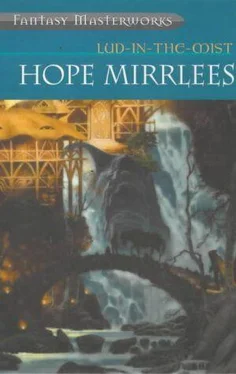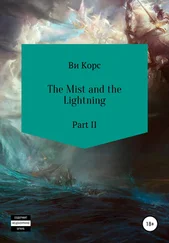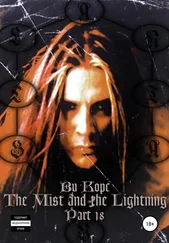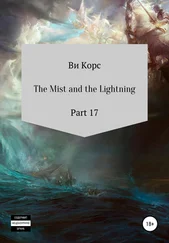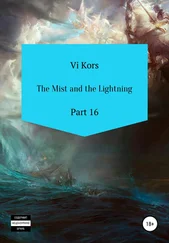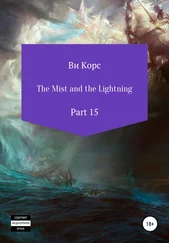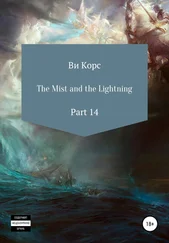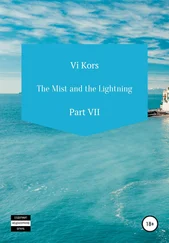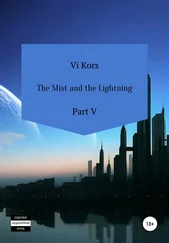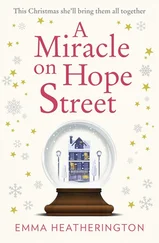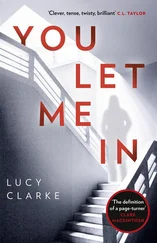"I have come to look for my son," he said. "I have been told that… er… he came this way some two or three nights ago. If so, you must have seen him."
The Yeomen shook their heads. "No, your Worship, we've seen no little boy. In fact, all the weeks we've been here we've not seen a living soul. And if there are any folks about they must be as swift as swallows and as silent-footed as cats, and as hard to see - well, as the dead themselves. No, your Worship, little Master Chanticleer has not passed this way."
Master Nathaniel sighed wearily. "I had a feeling that you would not have seen him," he said; adding dreamily more to himself than to them: "Who knows? He may have gone by the Milky Way."
And then it struck him that this was probably the last normal encounter he would ever have with ordinary human beings, and he smiled at them wistfully.
"Well, well," he said, "you're having a pleasant holiday, I expect… nothing to do and plenty to eat and drink, eh? Here's a couple of crowns for you. Send to one of the farms for a pigskin of red wine and drink my health… and my son's. I'm off on what may prove a very long journey; I suppose this bridle-path will be as good a route as any?"
They stared at him in amazement.
"Please, your Worship, if you'll excuse me mentioning it, you must be making a mistake," said the sentry, in a shocked voice. "All the bridle-paths about here lead to nowhere but the Elfin Marches… and beyond."
"It is for beyond that I am bound," answered Master Nathaniel curtly. And digging his spurs into his horse's flanks, he dashed past the horrified Yeomen, and up one of the bridle-paths, as if he would take the Debatable Hills by storm.
For a few seconds they stood staring at one another, with scared, astonished eyes. Then the sentry gave a low whistle.
"He must be powerful fond of that little chap," he said.
"If the little chap really slipped past without our seeing him, that will be the third Chanticleer to cross the hills. First there was the little missy at the Academy, then the young chap, then the Mayor."
"Aye, but they didn't do it on an empty stomach -leastways, we know the Crabapple Blossoms didn't, and if the talk in Lud be true, the little chap had had a taste too of what he oughtn't," said another. "But it's another story to go when you're in your right mind. Doctor Leer can't have been in the right when he said all them Magistrates were played out, for it's the bravest thing has ever been done in Dorimare."
Master Nathaniel, for how long he could not have said, went riding up and up the bridle-path that wound in and out among the foothills, which gradually grew higher and higher. Not a living creature did he meet with - not a goat, not so much as a bird. He began to feel curiously drowsy, as if he were riding in a dream.
Suddenly his consciousness seemed to have gone out of gear, to have missed one of the notches in time or space, for he found himself riding along a high-road, in the midst of a crowd of peasants in holiday attire. Nor did this surprise him - his passive uncritical mood was impervious to surprise.
And yet… what were these people with whom he had mingled? And ordinary troop of holiday-making peasants? At first sight, so they seemed. There were pretty girls, with sunny hair escaping from under red and blue handkerchiefs, and rustic dandies cross-gartered with gay ribands, and old women with quiet, nobly-lined faces - a village community bound for some fair or merry-making.
But why were their eyes so fixed and strange, and why did they walk in absolute silence ?
And then the invisible cicerone of dreams, who is one's other self, whispered in his ear, These are they whom men call dead.
And, like everything else said by that cicerone, these words seemed to throw a flood of light on the situation, to make it immediately normal, even prosaic.
Then the road took a sudden turn, and before them stretched a sort of heath, dotted with the white booths of a fair.
"That is the market of souls," whispered the invisible cicerone. "Of course, of course," muttered Master Nathaniel, as if all his life he had known of its existence. And, indeed, he had forgotten all about Ranulph, and thought that to visit this fair had been the one object of his journey.
They crossed the heath, and then they paid their gate-money to a silent old man. And though Master Nathaniel paid with a coin of a metal and design he had never seen before, it was with no sense of a link missing in the chain of cause and effect that he produced it from his pocket.
Outwardly, there was nothing different in this fair from those in Dorimare. Pewterers, shoemakers, silversmiths were displaying their wares; there were cows and sheep and pigs, and refreshment booths and raree-shows. But instead of the cheerful, variegated din that is part of the fun of the every-day fair, over this one there reigned complete silence; for the beasts were as silent as the people. Dead silence, and blazing sun.
Master Nathaniel started off to investigate the booths. In one of them they were flinging darts at a pasteboard target, on which were painted various of the heavenly bodies, with the moon in the centre. Anyone whose dart struck the moon was allowed to choose a prize from a heap of glittering miscellaneous objects - golden feathers, shells painted with curious designs, brilliantly-coloured pots, fans, silver sheep-bells.
"They're like Hempie's new ornaments," thought Master Nathaniel.
In another booth there was a merry-go-round of silver horses and gilded chariots - both sadly tarnished. It was a primitive affair that moved not by machinery, but by the ceaseless trudging of a live pony - a patient, dingy little beast - tied to it with a rope. And the motion generated a thin, cracked music - tunes that had been popular in Lud-in-the-Mist when Master Nathaniel had been a little boy.
There was "Oh, you Little Charmer with your pretty Puce Bow," there was "Old Daddy Popinjay fell down upon his Rump," there was "Why did she cock her Pretty Blue Eye at the Lad with the Silver Buckles?"
But, except for one solitary little boy, the tarnished horses and chariots whirled round without riders; and the pert tunes sounded so thin and wan as to accentuate rather than destroy the silence and atmosphere of melancholy.
In a hopeless, resigned sort of way, the little boy was sobbing. It was as if he felt that he was doomed by some inexorable fate to whirl round for ever and ever with the tarnished horses and chariots, the dingy, patient pony, and the old cracked tunes.
"It is not long," said the invisible cicerone, "since that little boy was stolen from the mortals. He still can weep."
Master Nathaniel felt a sudden tightening in his throat. Poor little boy! Poor little lonely boy! What was it he reminded him of? Something painful, and very near his heart.
Round and round trudged the pony, round and round went the hidden musical-box, grinding out its thin, blurred tunes.
Why did she cock her pretty blue eye
At the lad with the silver buckles,
When the penniless lad who was handsome and spry
Got nought but a rap on his knuckles?
These vulgar songs, though faded, were not really old. Nevertheless, to Master Nathaniel, they were the oldest songs in existence - sung by the Morning Stars when all the world was young. For they were freighted with his childhood, and brought the memory, or, rather, the tang, the scent, of the solemn innocent world of children, a world sans archness, sans humour, sans vulgarity, where they had sounded as pure and silvery as a shepherd's pipe. Where the little charmer with her puce bow, and the scheming hussy who had cocked her blue eye had been own sisters to the pretty fantastic ladies of the nursery rhymes, like them walking always to the accompaniment of tinkling bells and living on frangipane and sillabubs of peaches and cream; and whose gestures were stylised and actions preposterous - nonsense actions that needed no explanation. While mothers-in-law, shrewish wives, falling in love - they were just pretty words like brightly-coloured beads, strung together without meaning.
Читать дальше
